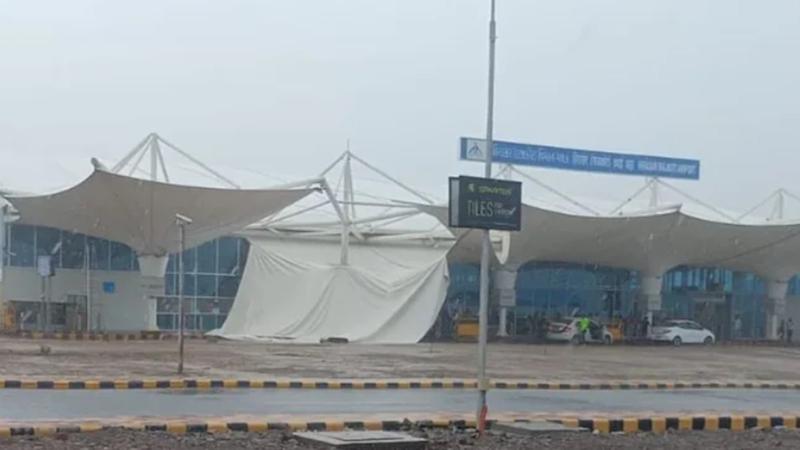Published 18:22 IST, June 29th 2024
3 Days, 3 Incidents: Delhi to Rajkot — Who's Accountable For Safety at Airports?
A canopy collapsed at Gujarat's Rajkot Airport amid heavy rainfall on Saturday

Canopy collapses at Rajkot Airport | Image:
PTI
- Listen to this article
- 7 min read
Advertisement
13:17 IST, June 29th 2024




